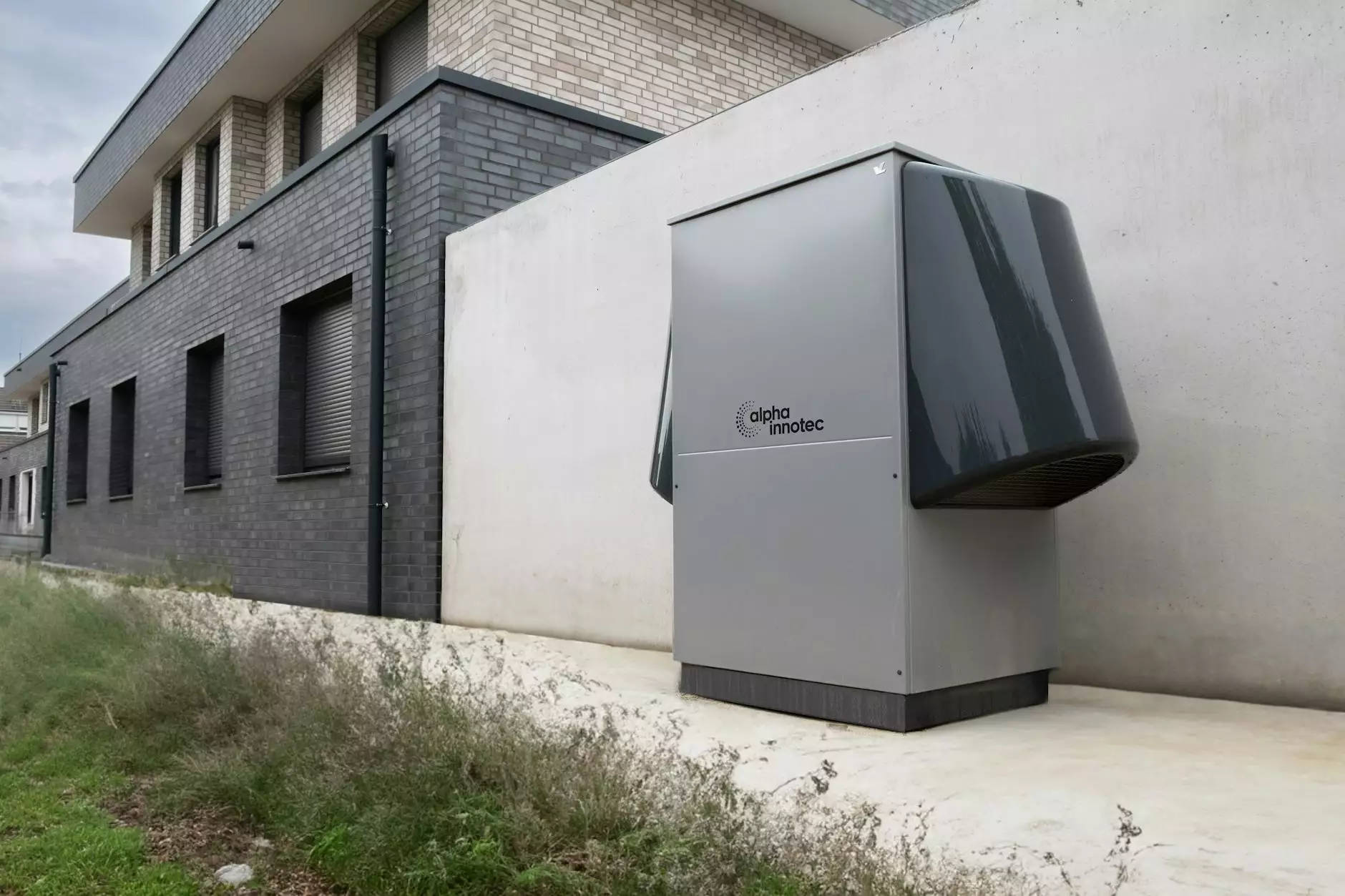Transforming Businesses with Modular Refrigeration Equipment

Understanding Modular Refrigeration Technology
Modular refrigeration equipment is revolutionizing the way businesses manage temperature-controlled environments. This innovative approach provides flexibility, efficiency, and scalability for businesses of all sizes. The core principle behind modular refrigeration is to create systems that can be easily customized and expanded based on specific business needs, making it an essential choice for industries such as food and beverage, pharmaceuticals, and logistics.
The Advantages of Modular Refrigeration Systems
The adoption of modular refrigeration systems can lead to significant improvements in various operational aspects:
- Flexibility: Modular units can be configured to fit the available space, providing optimal use of facilities.
- Scalability: Businesses can start with a smaller system and expand it as they grow, ensuring that investments align with current requirements.
- Energy Efficiency: Modern modular refrigeration units are designed to minimize energy consumption, leading to reduced operating costs.
- Improved Safety: Consistent and accurate temperature management ensures the safety of perishable goods, reducing waste and potential financial loss.
How Modular Refrigeration Supports Food Safety
In the food industry, maintaining the cold chain is crucial. Modular refrigeration equipment plays a pivotal role in preserving food safety. By ensuring that products are stored at the correct temperatures, businesses can mitigate risks associated with spoilage and contamination. Understanding the differences in temperature requirements for various food types is essential:
- Meat and Seafood: These products require temperatures below 4°C to prevent bacterial growth.
- Dairy Products: Fresh milk and cheese should be stored at consistent temperatures between 1°C and 4°C.
- Fruits and Vegetables: Proper refrigeration can enhance shelf life and quality, generally needing around 4°C to 7°C.
Cost Efficiency and ROI of Investing in Modular Systems
Investing in modular refrigeration equipment not only contributes to operational efficiency but also offers a compelling return on investment (ROI). By reducing energy costs, lowering maintenance expenses, and decreasing product loss, businesses can achieve significant savings. The initial investment can often be recuperated within a few years thanks to these enhanced efficiencies. Here’s a breakdown of potential cost savings:
- Lower Energy Bills: Advanced systems consume less energy while maintaining optimal performance.
- Minimal Downtime: The modular design allows for quick repairs and replacements without extensive downtime.
- Less Product Waste: Reliable temperature control minimizes the risk of spoilage, leading to lower waste costs.
The Modular Cold Room Solution
One of the most efficient ways to implement modular refrigeration is through the use of modular cold rooms. These cold storage units are designed to be versatile and come in various sizes, accommodating different business needs. Here’s why modular cold rooms are a smart choice for many businesses:
- Customizable Size: From small businesses to large corporations, cold rooms can be tailored to fit specific requirements.
- Rapid Installation: Modular cold rooms can be quickly erected, reducing the time to get operations running.
- Energy Efficient Designs: They are built to retain cold air effectively and require less energy to operate.
Applications of Modular Refrigeration Equipment
The versatility of modular refrigeration equipment makes it suitable for a broad range of applications across various industries. Here are some notable examples:
- Food and Beverage Industry: Restaurants and catering services use modular refrigeration to store ingredients safely.
- Pharmaceuticals: Hospitals and clinics rely on refrigeration to maintain the integrity of temperature-sensitive medications.
- Logistics and Distribution: Cold storage and modular solutions are critical for supply chain efficiency.
Environmental Impact of Modular Refrigeration
As businesses become more aware of their environmental footprint, the demand for sustainable practices is increasing. Modular refrigeration equipment is leading the industry in eco-friendly solutions by:
- Reducing Energy Use: With efficient designs, these systems significantly lower energy consumption.
- Minimizing Waste: Better temperature control helps reduce food waste and enhances product lifecycle.
- Recyclable Materials: Many modular systems are built using sustainable materials that can be recycled at the end of their lifecycle.
Choosing the Right Modular Refrigeration Equipment
With numerous options on the market, selecting the appropriate modular refrigeration equipment can be challenging. Here are some factors to consider:
- Space Constraints: Evaluate the physical space available for the installation and choose a system that maximizes efficiency.
- Temperature Requirements: Identify the temperature needs for your specific products to ensure proper performance.
- Future Expansion: Select systems that allow for easy upgrades and additional units as your business grows.
Conclusion: Embracing the Future with Modular Refrigeration
The benefits of implementing modular refrigeration equipment are numerous and can significantly impact a business’s efficiency, safety, and sustainability. As industries move toward more adaptable and economical solutions, investing in modular refrigeration is not just a trend but a necessity. By choosing reliable suppliers and understanding specific needs, businesses can position themselves advantageously in the market.
Explore More Opportunities
For those seeking to enhance their cold storage capabilities, visit modularcoldrooms.co.uk for comprehensive information on the latest modular refrigeration solutions. Discover how modern technology can streamline your operations and reduce costs, all while ensuring the highest standards of product safety.
https://modularcoldrooms.co.uk/








